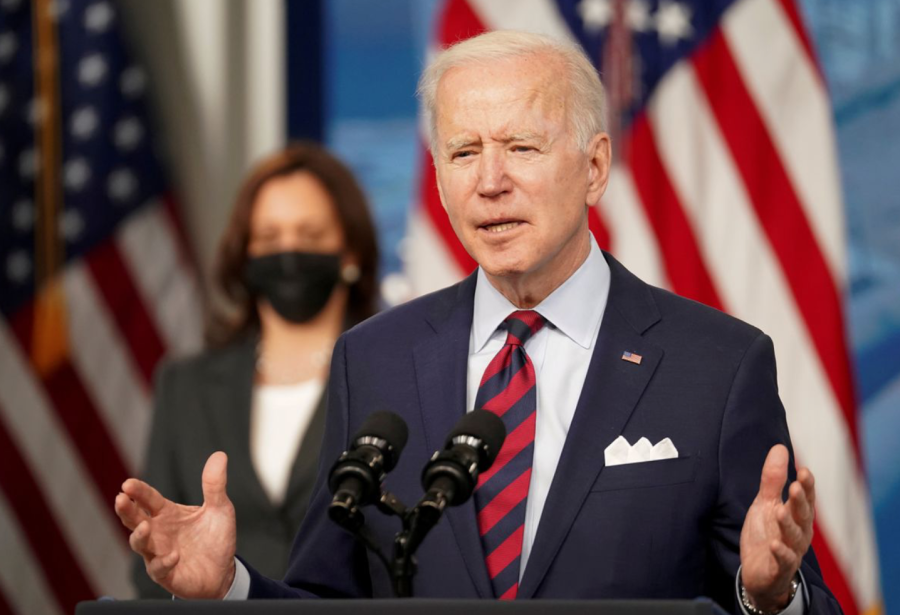President Biden’s Corporate Tax Sophistry
Courtesy of REUTERS/Kevin Lamarque
U.S. President Biden speaks about jobs and the economy at the White House.
September 29, 2021
According to The New York Times, President Joe Biden’s signature infrastructure bill, The American Jobs Plan, comes with a price tag of $2.3 trillion over the next eight years. In addition to the infrastructure bill, Biden has expressed support for increasing federal spending to levels not seen since World War II, although the razor-thin Democratic majorities in the House and Senate likely do not possess the political capital necessary to pass all of the president’s prerogatives.
Anytime a politician articulates a vision with a lofty price tag, budget hawks can be heard from every corner of the nation: “how are we going to pay for that?” It is a fair question to ask, especially since the United States public debt already exceeds 100% of GDP and has since before the pandemic.
Biden’s rejoinder to such questions is usually something resembling the claim that he will “make the wealthy pay their fair share,” without raising taxes on the middle class. It is a simple yet effective political tactic that has been around for decades: you will not be inconvenienced by my proposal, they will. However, there is a glaring problem in Biden’s promise. While it is true that he does not plan to directly raise taxes on the middle class, there are multiple ways for the middle class to bear the brunt of the president’s spending habits even without direct taxation.
As part of the “wealthy paying their fair share,” Biden’s American Jobs Plan includes raising the corporate tax rate from 21% to 28%. With the evil corporations paying more in taxes, the average American benefits from improved infrastructure without bearing the cost, right? Wrong.
Corporations react to market forces and are unwilling to simply watch their profit margins decline as a result of forking over an additional 7% of their revenue to the federal government. Like any other person or entity forced to adjust their lifestyle due to a decrease in income, corporations will look to make up the loss in other avenues. This may come by way of wage cuts or layoffs, but it is far likelier that corporations will wind up raising prices to maintain their profit margins under the higher tax rate. If corporation X was turning a profit of $1 million selling widgets for $3 at a 21% tax rate, it will have to increase the price of its widgets by 7% if it wants to realize $1 million in profit at the new 28% tax rate.
Who winds up shouldering the cost of price hikes? The very consumer that President Biden promised will not see their taxes increase. While the IRS may not demand 7% more in income taxes from the suburban single mother that helped put Joe Biden in the Oval Office, in reality she will wind up paying more for the same product to offset the cost of Biden’s plan.
Perhaps infrastructure is important enough to outweigh the president’s sophistry. Whether or not that is the case, one struggles to think of a worse time to push legislation that will result in price increases than our current moment. Inflation has risen continuously throughout the pandemic recovery, with the CPI rising 5.1% from Sept. 2020 to Aug. 2021.
Simply put, prices are on the rise without the corporate tax hike, and now the White House wants to incentivize further price increases by adjusting the tax code. The candidate who promised not to “shut down the economy” on the campaign trail is eight months into his term and seems dead set on policies that will make the money in Americans’ pockets worth less than it was when they earned it.
If he is going to reverse this trend, our ice cream aficionado-in-chief should reconsider his corporate tax plan.











